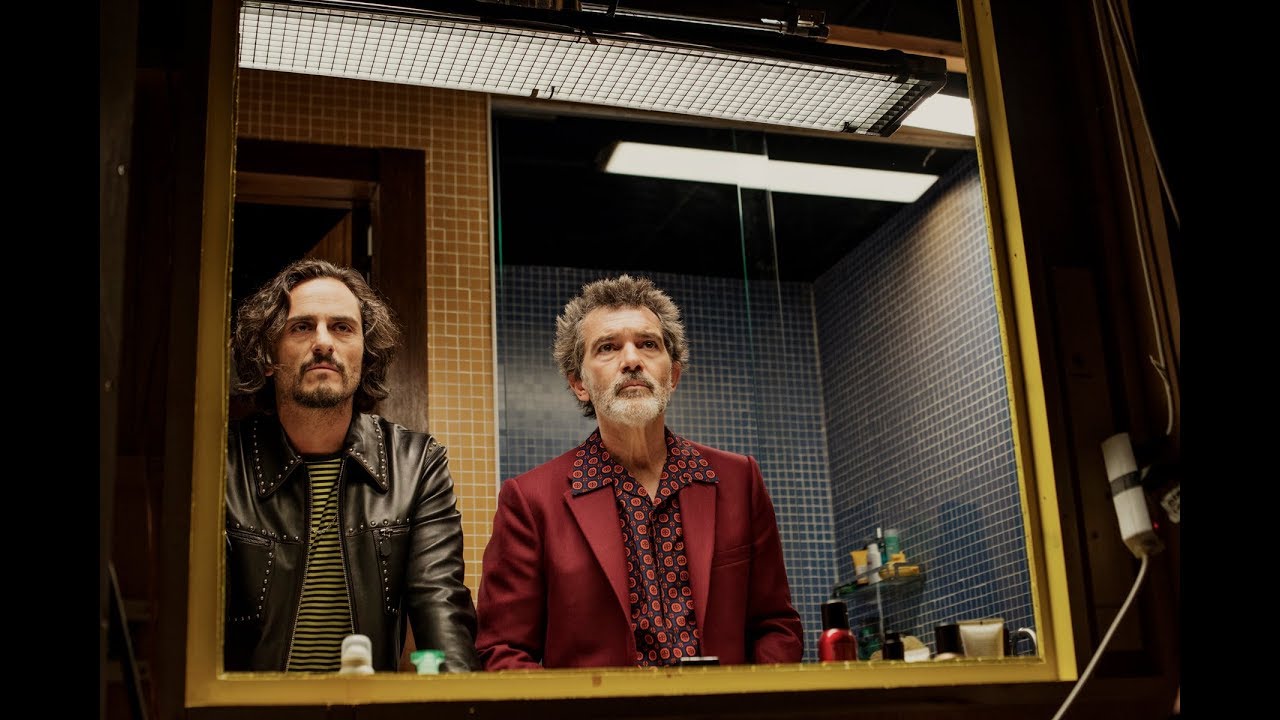
Unresolved trauma can construct roadblocks for one’s mental health and impediments toward progress within any part of our lives. Often times, people struggle to move forward and embark on new, productive paths due to the inability to reconcile the mess they experienced behind them. Such is the situation Salvador Mallo (Antonio Banderas) is mired in when we first meet him in Pain & Glory, the latest film from acclaimed director Pedro Almodóvar. In the film, Mallo is himself a famed director stuck in a creative rut and suffering from various physical ailments which combine to completely stunt his creativity. As the 30 year anniversary of the release of one of his seminal films approaches, Salvador finds himself reflecting upon his life and upbringing and coming to terms with his life experiences.
Salvador’s relationship with his mother Jacinta (whose younger self is played wonderfully by Penélope Cruz and by Julieta Serrano at the end of her life) is presented as the weight that bears down on him and the barrier within his psyche preventing him from moving forward. As a youth, Jacinta sends him away to seminary school with the hope of giving him the chance at opportunities and prosperity that she never had their poor, rural circumstances were not conducive toward, despite Salvador’s resistance to leaving. His inability to please his mother and live up to her expectations, and her inability to be open and communicative to her son regarding their relationship, weighs heavily on Salvador; a situation that will be relatable to many in the viewing audience. Reconciling our tumultuous pasts can be a heavy burden and stifle any potential growth that may happen in the present. Salvador is accomplished within his profession, but cannot bring himself to perform to his capabilities due to the burden he carries from incidents long passed. The pain from his past and the physical pain he suffers due to the ailments affecting his body drive him to self medicate with heroin, only deepening the rut in which he resides. It is only when Salvador comes to terms with his relationship with his mother that he can become artistic again, actually using art as his catharsis with his next film being autobiographical and delving into his early life. The lesson that Pain & Glory presents in its message on moving on from trauma is a valuable one.
Pain & Glory is a well-directed film from a director who has a well-earned reputation for creating high quality cinema. Pedro Almodóvar nimbly intersperses the film’s conventional narrative with flashbacks to Salvador’s childhood that slowly document his painful past in a way that doesn’t confuse viewers or muddy the onscreen product. He is also able to garner top notch performances from his actors, in particular the previously mentioned Penélope Cruz. Much of the buzz surrounding Pain & Glory leading up to its release surrounding Banderas, who certainly turns in a performance worthy of the praise he’s received. His reserved portrayal of a man in pain and crisis provides powerful nuance to what it is to be mired in such circumstances. But Cruz’s portrait of a mother desperate to provide a suitable upbringing for her son, and a willingness to do whatever it takes to see her plan through, is really powerful and makes quite the impression on its own. Asier Etxeandia also presents a notable turn as down on his luck actor Alberto Crespo, providing one of the film’s best scenes during a theatrical monologue. Pain & Glory must also be commended for its look, providing some eye-popping staging shots and a stylish animation of Salvador’s various physical ailments that’s both visually stimulating and informative, taking what could have been a boring medical lesson and making it interesting to watch and listen to.
Despite a relevant and well-done theme, and some good performances from its main actors, Pain & Glory just failed to connect as a whole. The film felt a little slow and plodding, and while the character study is good technically, there was little emotional connection created. This was evident in the days following the screening where it failed to make a lasting impression or cross my mind at all. Unfortunately, Pain & Glory doesn’t surpass the sum of its parts.
Image: Sony Pictures Releasing International

